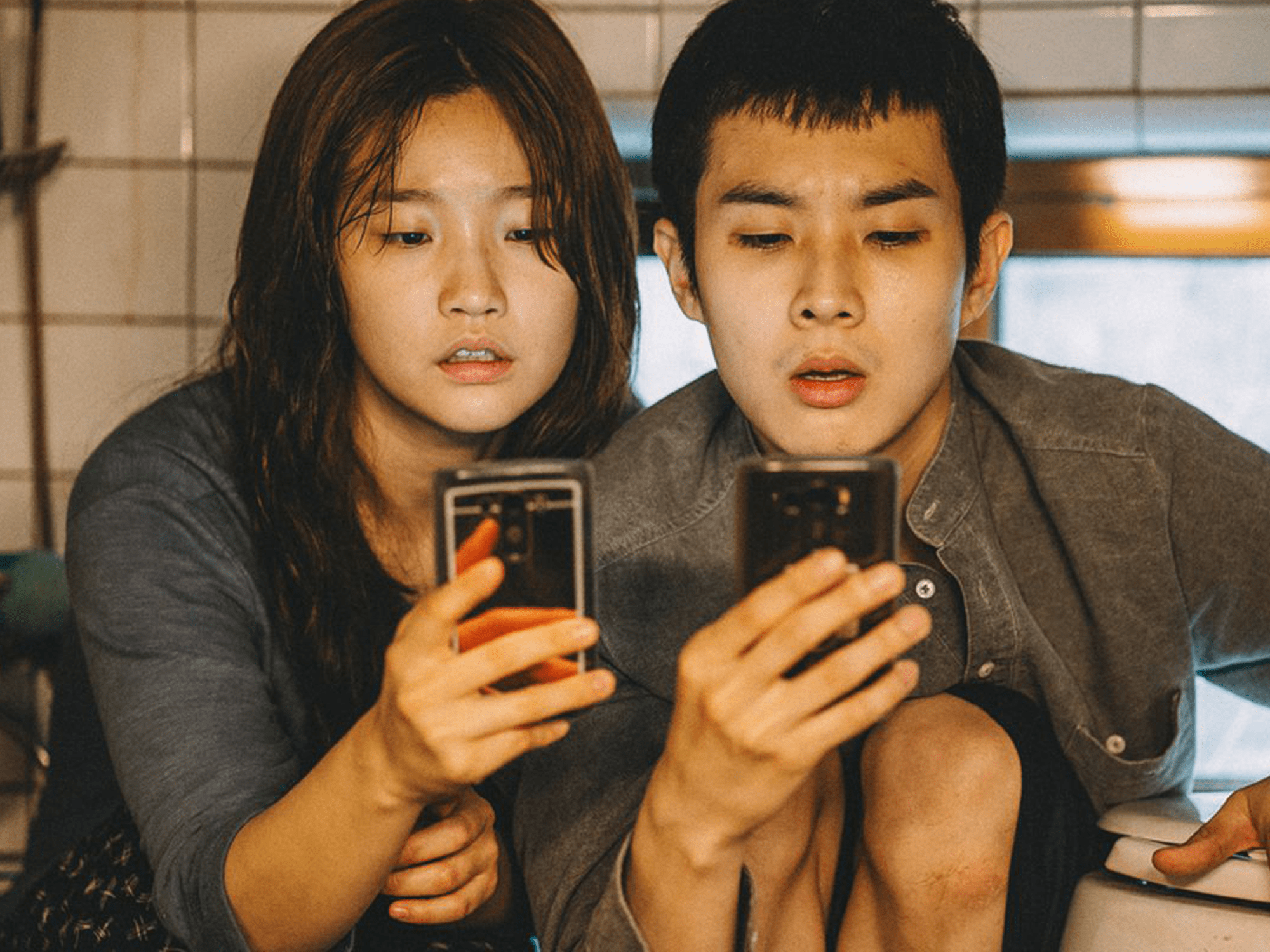How Letterboxd turned movies into metrics

It might seem like overkill to suggest that we now live a gamified existence, but really the proof is in the pudding. Start your day with a run and it’s likely you’ll record it on Strava. Get through some more of the book you’re reading on your morning commute and you’ll take to Goodreads to update what page you’re on. Then you’ll flick through Hinge in bed, your heart pounding as the number of men with answers referencing pints begins to tot up. Whether that sounds like something from a particularly predictable episode of Black Mirror or not, it seems that we can’t really go about our day without making what were once abstract experiences into online fodder. And the first frontier of all of this? It comes in the form of a little app called Letterboxd.
Letterboxd has skyrocketed to such an extent you can’t really scroll through TikTok without seeing their “four favourites” interview being thrust upon everyone from Emma Stone to Adam Sandler. Letterboxd describes itself as a “social platform for sharing your taste in film”: born out of trying to provide an alternative outlet for cinephiles to record their musings on each film they watched, as of September 2023 it has ten million users. But with features like Letterboxd’s “Year in Review”, it’s plain to see that the platform also makes the leisurely act of film-watching competitive. “There’s a compulsion to watch as much as possible,” avid Letterboxd user James, 22, tells HUNGER. “I guess it depends on the type of person you are, but as someone with an obsessive and addictive personality, I do find myself pressured to watch as much as possible otherwise I almost feel I’ll be missing out”.
Online discourse around the platform has tapped into this too: a tweet calling it “shallow” and “performative” racked up hordes of likes and retweets, and prominent film blog FLASZ ON FILM posted a essay on how Letterboxd “successfully incentivized and rewarded very specific types of behaviour”. The notion of “rewarding” the simple act of film-watching even conjures up an article by The Guardian from back in 2022. In that, they positioned our penchant for tracking the previously un-trackable as being all about dopamine: like TikTok (or any scrolling-based social media platform for that matter), the “pursuit chemical […] keeps you playing”.
The release of Jonathan Glazer’s film The Zone of Interest sparked conversations around the appropriateness of the pithy, one-line reviews that garner the most likes on Letterboxd. It even provoked discussion around how quickly the culprits of these reviews-cum-punchlines switched it up and churned out long tirades instead. The takeaway? Both are just different sides of the same coin; both are guided by what will accumulate the most likes from fellow Letterboxd-ers. And it’s that performative aspect of Letterboxd that tends to not sit as well with its users. “As there are no privacy settings on the app, it’s daunting to know that you could be unknowingly ripped to shreds simply for saying you thought Wonka was kind of fun” James says. Miranda, 26, who’s never made the jump from IMDb to Letterboxd, echoes this: “I don’t like how public it is. I don’t want people to see my reviews and lists, and I don’t want to have to make a weird secret account”.
My own relationship with Letterboxd isn’t quite at the quasi-boycotting level, but I’m certainly dubious of the app. I do try to use the platform’s addictive nature to my advantage in order to watch more films, something that was also raised by Kirath, 26, in regards to Goodreads, the decidedly more clunky, book-based version of Letterboxd. “I went on a long reading hiatus after falling out of love with it because of my literature degree,” she tells HUNGER. “This year I was determined to get back into it and set up a Goodreads account. Long story short, I read five books in January, including [the notoriously long] A Little Life. It gave me a sense of purpose at a time when I was really in a mental rut”.
I have, however, made a conscious decision to sack off Letterboxd’s 5-star rating system, instead giving films a heart if I particularly enjoy them. I’m not alone in this either. Though James does use the conventional Letterboxd rating system, he recognises its flaws: “rating films with a 5-star system really restricts one’s ability to see films in a well rounded light” he told HUNGER. “You feel slightly pressured to slap on a rating that then becomes a lot of people’s point of reference for whether they should watch that film”. Is my alternative rating system pretentious? Yes. But it comes from a place of recognising that the abstract experience of watching a piece of art shouldn’t be reducible to a number out of five, nor a neat little review that lives on your phone screen. If Letterboxd has had something of a reckoning over the years, it’s this rhetoric that’s at the heart of it: how the platform hinders a deeper engagement with cinema.
But maybe we haven’t been “properly” interacting with cinema for a long time. In his 2014 book Constraint as Liberation in the Era of Digital Film Theory, film scholar Nicholas Rombes advanced the idea that films lost their “mythic aura” when they moved from big screens to computers, and things like the pause button were introduced. Films stopped being something you watched uninterrupted in a dark auditorium, and became background noise to a lengthy scroll through Instagram, or something you watched over the course of a few days. You don’t even need to be plugged into complex film criticism to recognise that cinema just ain’t what it used to be. “People love to say Letterboxd has made people bad movie watchers but it’s actually TikTok that has poisoned a generation of filmgoers,” says one user on X. “A bunch of guys with beards or wire framed glasses and a pedo stash telling everyone a24 rules and anything made before 1990 is pretentious”.
What Cummings hasn’t experienced, however, is the so-called “dark side” of Letterboxd. Not only has the platform drawn criticism because of its addictive qualities, but because of how the user-generated ratings affect those films discussed on the app. Back in 2019, Letterboxd released a statement titled “Troll Patrol” which set out how they were combatting review bombing, the term used for when something is purposefully flooded with negative reviews. The most well-publicised target of this on Letterboxd was Captain Marvel; the female-led, quasi-critique of sexism starring Brie Larson even led to the platform stopping users from leaving reviews before a film is released. “Film is such a subjective art form, so to have an entire online space dedicated to individuals expressing their opinions doesn’t exactly bode well for the more inconsiderate amongst us” echoes James.
All of this isn’t to say that there isn’t a way of using Letterboxd that finds a middle-ground between compulsive movie-watching and boycotting the app. Despite the “contradiction between the goals of the platform and the goals of a user”, psychotherapist Eloise Skinner believes that “those with genuine passion and appreciation for the substance itself will find a way to use the app in a way that supports their enjoyment”. It’s probably director Cummings’ relationship with Letterboxd that’s the most convincing testament to this. “People do take pride in the amount of movies they watch. They watch movies just to log them. But I sense a deep fulfilment and appreciation in the cinephile community. I think it’s a good thing.” As Cummings also points out, when it comes to Letterboxd, we might want to count our blessings. “I think our entertainment silos are just going to become more and more fractured. Twenty five years from now people will be talking to their remotes, saying ‘give me a film’, and it will just recommend something to them”. In this sense, Letterboxd might actually be quite… good? Whether it’s encouraging rampant “discoursification” or damaging simplification, at least it’s got people talking. “The thing I love most about Letterboxd is how it allows people to consider films on a more constructive level” concludes James.

